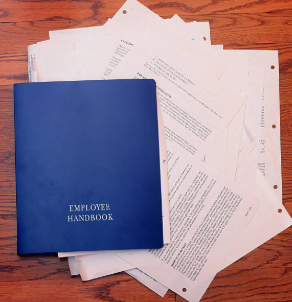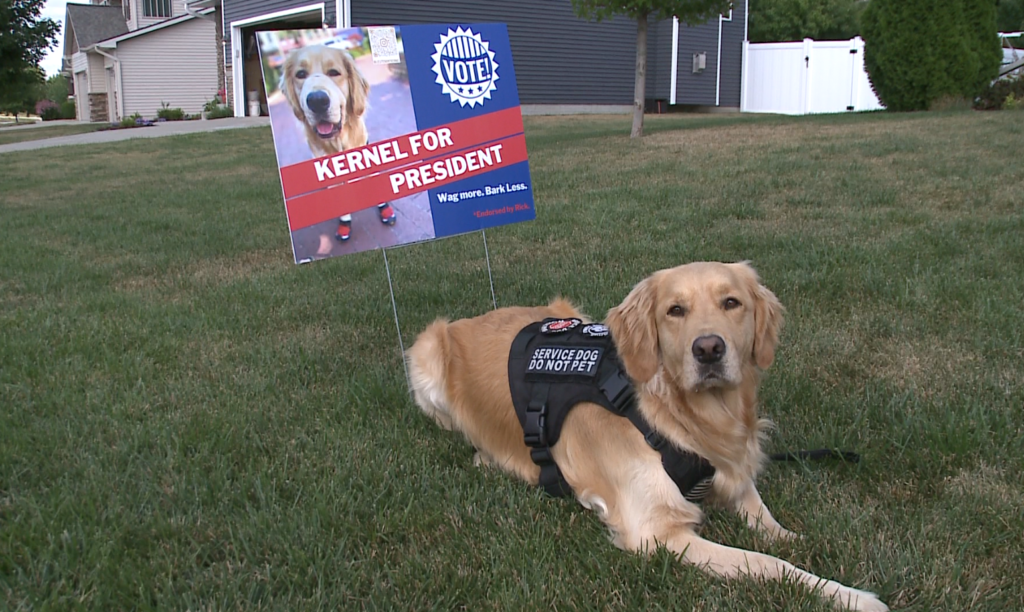Below is a review of the posts (on Facebook, LinkedIn, and Twitter/X) from the past week. You can check out the full posts by clicking on the links.

The post on Sunday 8/27/2023 was about Stericycle and the workplace rules that might violate the NLRA and put ALL employers in legal jeopardy. The National Labor Relations Board issued this decision in early August 2023 – even if you are a non-union workplace you still need to keep reading. Stericycle overruled existing precedent and established a stricter test that may make some existing work rules facially illegal. Let’s take a step back and walk through this to where we are now.
In its 2017 decision in Boeing, the Board established a balancing test for rules, weighing the potential impact on the employees Section 7 rights (applicable to ALL employees in ALL work settings) and the employer’s legitimate justifications for the rule. The board in Boeing set out three categories for work rules; they are noted in the post. Under Boeing, work rules were evaluated from the perspective of a reasonable employee to see if they would reasonably construe a rule as restricting their Section 7 rights.
Before Boeing was the Board’s decision in Luther Heritage in 2004. Boeing overruled one prong of the Luther Heritage test, but some cases after that may have departed slightly as noted in the post.
And now we have Stericycle under which the test builds on the Luteran Heritage standard. The initial threshold is for NLRB General Counsel to show that a challenged rule has a reasonable tendency to chill employees from exercising their Section 7 rights. The perspective to be used is noted in the post. The big difference under Stericycle: the rule is presumptively illegal if Board Counsel establishes that a reasonable employee could reasonably construe the rule to have a coercive meaning. Note how that one word (moving from “would” to “could”) has such a huge impact! There is an opportunity for an employer to rebut the presumption; what it must show is noted in the post.
The new test is now much more employee-friendly and will surely lead to the filing of more charges (and board decision). So, what can or should employers do now? Review all workplace rules to see if they could be interpreted as chilling Section 7 rights and more as noted in the post.
TAKEAWAY: As always, rules should be periodically reviewed for legal compliance and get a stamp of approval from an employment lawyer.

The post on Monday 8/28/2023 was about employment law: terminating employees based on an ‘honest belief’ of fraud did not violate FMLA. The federal appellate court determined that CSX Transportation did not violate the law when it terminated employees it suspected of fraud in seeking medical leave. CSXT had issued furlough notices to employees; more than 65 of them submitted FMLA forms for medical leave for off-duty minor soft-tissue injuries. What was peculiar about the forms? See the post. The employees had submitted the leave forms under a CSX policy providing health and welfare benefits for up to two years to employees furloughed while on medical leave. After the forms were submitted, CSXT’s chief medical officer suspected fraud. The company then charged the employees with a rule violation (which one is noted in the post) and after following requisite steps (again, see the post) terminated their employment. Fifty-eight of them sued, alleging FMLA interference (and violation of state law and other things). When it analyzed the facts, the court said that CSXT had provided a legitimate, nondiscriminatory reason for the terminations and that the employees did not who that the reason was pretextual. As for the analysis under the FMLA interference count, see the post. The court did not rule on whether there was actual fraud as it found it need not go that far for the claims before it.
TAKEAWAY: Don’t just deny FMLA leave; first investigate any concerns carefully and then think about a denial. And consult an employment lawyer.

The post on Tuesday 8/29/2023 asked who can use Twitter’s offer of legal fees “If You Were Unfairly Treated by Your Employer Due to [Tweets]”? Perhaps quite a few – because there are states and localities (cities and counties) that have laws or ordinances banning private employers from discriminating against employees based on certain kinds of speech. The post contains a map noting which states have these laws. The First Amendment is not implicated as that only protects against govern-ment action; but here we are talking about legislation that allows a cause of action for private action.
Private employers may be bound to certain terms by contract; if an employee is terminated for posting or liking a Tweet and that violates the contract, Musk’s offer might come into play. And what about if Tweets cause one group of employees who share a protected characteristic (such as those in the post) to be fired but not those in another such group? Would Musk’s offer then apply? And, finally, if Musk actually stands behind his offer – which is nowhere near a sure thing – that might serve as a deterrent as noted in the post.
TAKEAWAY: Is this a source of funding and encouragement for employees to act on what they believe to be unlawful termination? Only time will tell …

The post on Wednesday 8/30/2023 told us a roofing contractor in $3.7M stalemate with condo complex. A 157-unit condominium complex is fighting with the roofing contractor firm it hired for a reroof of its 15 buildings at a cost of $3.7 million. Allegedly the association, a collection of 15 low- and mid-rise apartment buildings built in the late 1960s, fired the firm it hired, C.M.V. Company Inc., last June. The condo board then filed an emergency action in state court to prevent the firm and its owner from “… absconding with nearly $700,000 of the Condo community’s money.”
The association had been spending a lot (the exact annual amount is in the post) to repair roofs. C.M.V., which had been doing roof maintenance on the buildings in the association since 2019, submitted a bid for the reroofing project. In May 2022 the association awarded the bid and contract to C.M.V. The association also obtained funding for the major project – see the post. Then in December 2022 the condo association said C.M.V. requested $686,500 for purchasing roofing materials, so the board issued the check in January 2023. The board alleges that no materials have been purchased, and C.M.V. has refused to return the funds. And there’s more. There are allegations regarding the warranty that was supposed to exist and the one that did exist. See the post for details. So the association fired C.M.V. on June 22. Four days later, C.M.V. sent an invoice to the association in the amount and on the basis noted in the post. The association alleges that nothing is due because of the facts as noted in the post. The association also alleges that while C.M.V. completed work on the community pool deck, its invoice is completely out of line (as noted in the post). More? Problems with interim roof repairs as detailed in the post. C.M.V. and its owner deny the allegations and are allegedly holding the money in escrow until matters are resolved. It also threatened a counterclaim. On July 26, a judge approved a stipulation signed by the parties’ attorneys relative to the escrow funds – see the post.
TAKEAWAY: Watch contracts and contractors closely and make sure safeguards are in case in case they don’t do what they should under a contract – and make sure a community association lawyer is on standby.

In the post on Thursday 8/31/2023 we read about a condo/HOA with no rules for vehicle size in parking area. What would your association do in this situation? Have you thought about it? First, the background facts. 30-year old condo building, parking access is in a Z shape and parking spaces are perpen-dicular to the sidewalk. There is nothing dictating the size of vehicles that can park in the spaces, even when there are winches and trailer hitches on the vehicles. So what does it mean if any portion of the vehicle is parked outside of the space? It means that some of the car is parked on (other) common areas. That may or may not be a problem – see the post. And if owners cannot work together to resolve the issues, then enforcement must occur (see the post). There might even be issues related to compliance with applicable law or ordinance …
TAKEAWAY: Work with a community association lawyer when dealing with common or limited common elements and their use.

The post on Friday 9/1/2023 reminded us that all dogs go to heaven, but only service dogs are protected by the ADA. It is imperative that people know the difference between service dogs and ESAs (emotional support animals) and how that affects the workplace and public places/spaces. Kernel is a lab – but not just any lab. He has been trained to help his owner, an army veteran, manage severe anxiety and PTSD issues. How he does that is in the post. Kernel wears a vest identifying him as a service dog. Are there limits as to where he can go with his owner? See the post. Service dogs don’t have to wear a vest or anything specific, so employers (and retail establishments and others) might not know they are service dogs. Two questions can be asked about the dogs; they are in the post. And that’s it. ESAs are different and are more limited in where they can go than are service dogs. But what is one thing ESAs and service dogs have in common? See the post.
TAKEAWAY: An employer (or other business) might need to allow a service dog on premises – even if there is a no dog/animal policy – knowing the applicable law in the situation is a must.

Finally, in the post yesterday 9/2/2023, we came full circle and talked about Stericycle: how all workplace rules could be illegal under a National Labor Relations Board decision – this applies to ALL workplaces, union and non-union. So what happens if an employee goes to HR and says they are a hamster from Venus and want to file a complaint because the policy of paying wages bi-weekly is chilling their Section 7 rights? Don’t laugh and say that’s preposterous. It might be, but so might the outcome under the recent Stericycle decision.
This decision changes the standard for determining whether an employer’s work rule that does not expressly restrict Section 7 rights is unlawful (under Section 8). Now the analysis favors employees; the steps are in the post. And many argue that the new standard is nonsensical in its reach. Go back to our post from Sunday 8/27/2023 for some of the history, including the Lutheran Heritage and Boeing cases. It is also in the post here. The change hinges on the word “could”, as in whether an employee could find that a rule restricts Section 7 rights, as opposed to the use of “would” in the preexisting standard. This is a difference in perspective as explained in the post.
The dissent in Stericycle hit on the problem with this new standard: if the “individual could possibly suspect that any isolated word or phrase in a rule that does not prohibit Section 7 activity might be interpreted to do so, that rule would coerce employees from engaging in protected concerted activity and therefore be presumptively unlawful”. The dissent continues as noted in the post – and tries to show how this new standard departs from reasonableness.
TAKEAWAY: There is as yet no guidance from the NLRB on how rules can be tailored so as to overcome the new presumption that might arise from but one employee’s interpretation, so employers must be careful and immediately talk to an employment lawyer.

 York, Pennsylvania 17403
York, Pennsylvania 17403